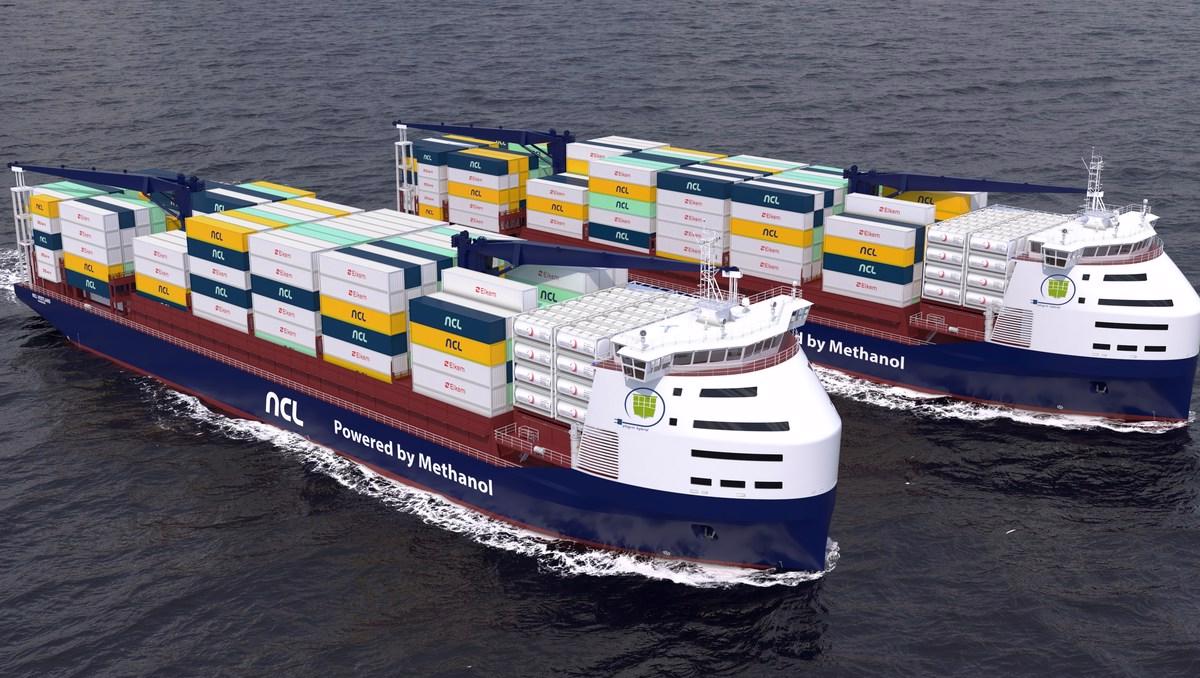The Week in Alternative Fuels
Here are some key developments in alternative bunker fuels from the past week.

PHOTO: MPCC's two upcoming methanol-ready container ships have been chartered for 15 years to North Sea Container Line, and will be used to ship products for industrial group Elkem and other companies. Elkem
EU policymakers made big breakthrough in shipping emission regulations towards the end of least year by deciding to bring the sector into the Emissions Trading System (EU ETS). Preparations for ETS compliance will not doubt be in the spotlight as we approach the start date next year.
Another EU shipping regulation that will be put under the microscope this year is FuelEU Maritime. As policymakers gear up to finalise the legal texts over the coming months, environmental organisation Transport and Environment (T&E) has answered frequently asked questions on the sub-quota for renewable e-fuels in the proposal.
The FuelEU Maritime proposes to mandate using at least 2% hydrogen-derived e-fuels on vessels in European waters, with a plan to increase that limit moving forward. Even though this rule has yet to take effect, it is clear that some shipping firms have already taken proactive measures to be ready for such future mandates, as seen from some of the top stories this week.
Bunker fuel producers are laying the groundwork to ramp up green fuel infrastructure and production capabilities to meet increasing demand from shipowners.
Sweden's Liquid Wind has partnered with local energy firm Umeå Energi on a third plant to produce renewable methanol for bunkering. This is in addition to the two plants already under construction with a total capacity of 150,000 mt/year of green e-methanol to meet shipping demand from 2025.
Fuel supplier Mabanaft and liner shipping company Hapag-Lloyd will study low-carbon ammonia bunkering for Hapag-Lloyd’s container ships. As part of the plan, Mabanaft is exploring ammonia bunkering infrastructure in the ports of Hamburg, Germany, and Houston, US.
Norway's MPC Container Ships (MPCC) entered into an e-fuels offtake agreement with power-to-liquid fuels producer Ineratec. Ineratec will produce synthetic marine diesel oil (MDO) for MPCC’s small- and medium-sized container ships through combining green hydrogen with biogenic CO2.
The American Bureau of Shipping and Singapore-based shipping majors Pacific Carriers (PCL) and PaxOcean have teamed up to assess whether methanol can fuel PCL's fleet. PCL chief executive Hor Weng Yew said that methane has "great potential" to aid the company's near-term decarbonisation goals.
By Konica Bhatt
Here is our selection of five top alternative fuels stories from this week:
The e-fuels proposal in the pending FuelEU Maritime regulation explained - T&E
Liquid Wind to build third e-methanol plant to produce for shipping demand
Hapag-Lloyd, Mabanaft to explore ammonia bunker supply
MPCC strikes e-fuels deal with German producer
ABS joins Pacific Carriers and PaxOcean on methanol bunker fuel study






